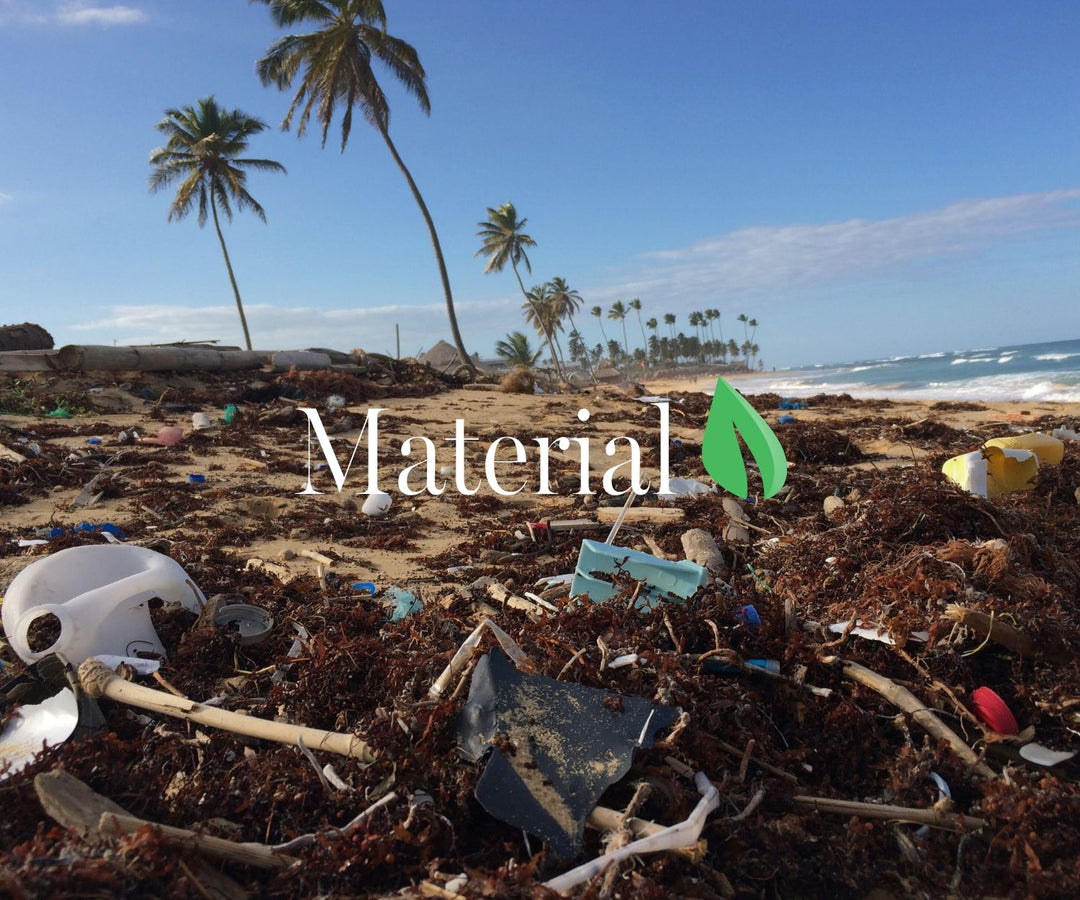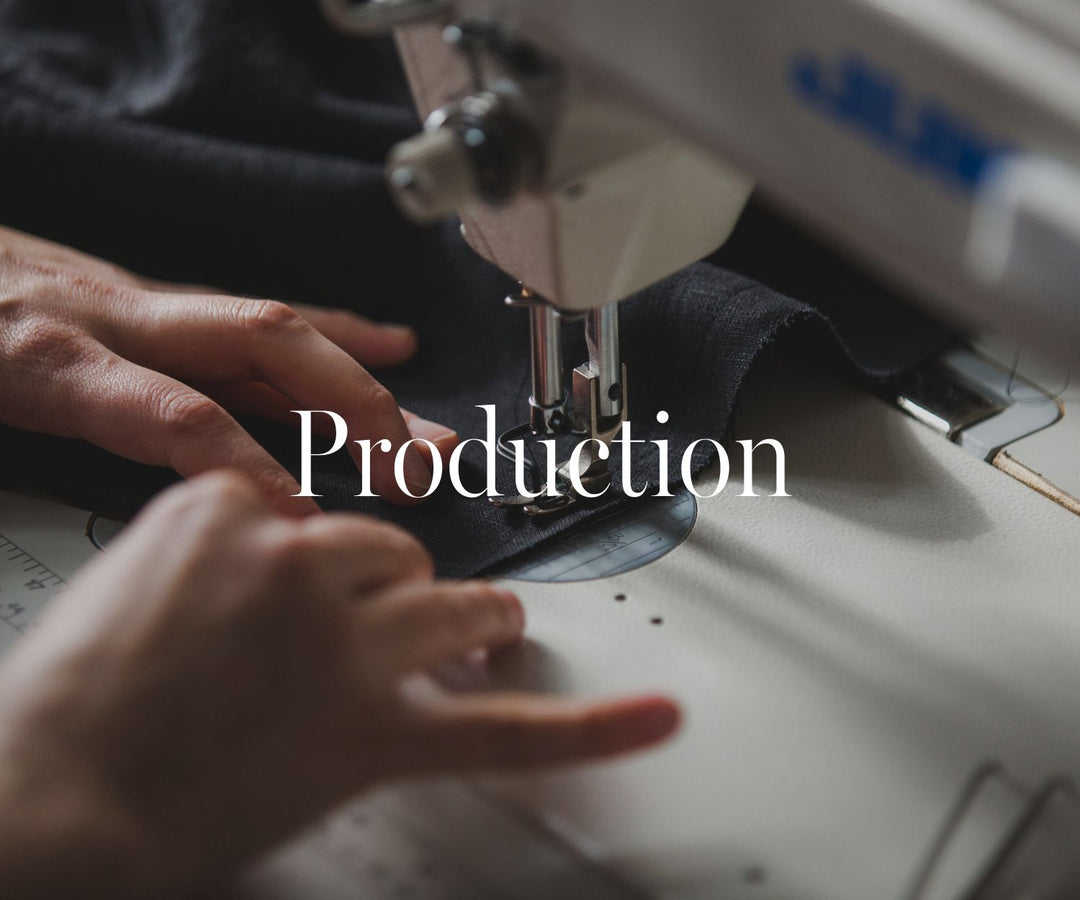We are committed to making premium quality apparel more sustainably, so you don't have to worry about the choices you make when you shop with us.
Material
100% of 2025 fabric content is responsibly sourced(1)
89% of 2025 synthetic fabric content is recycled
Products with at least 50% sustainable (recycled or organic) fabric content are denoted by the green leaf icon(2) to help you make better purchase decisions


Recycled polyester
We use GRS® certified recycled polyester yarns made from post-consumer waste, such as recycled plastic bottles. Using these materials reduces the impact of virgin synthetic material production on the environment by using less raw material (e.g., no petroleum) and less energy while reducing landfill and ocean waste.

Regenerated nylon
We use GRS® certified ECONYL® and Q-NOVA® regenerated nylon yarns. ECONYL® regenerated nylon is made entirely from recovered nylon waste, such as nylon fabric scraps, carpet fluff, fishing nets and pre-consumer industrial and plastic waste. Regenerated nylon can also be continuously recycled to produce new products with the same quality as virgin nylon.

Responsibly sourced cotton
We use responsible cotton grown in the U.S. (such as premium SUPIMA® extra-long staple cotton) and Australia by farms and growers that are part of the Cotton LEADS® program. SUPIMA® and Cotton LEADS® promote better cotton production by providing transparency and standards that reduce water, fertilizer and pesticide use; lower energy consumption; preserve land and enhance biodiversity when compared to other conventionally grown cottons. Our cotton is natural, biodegradable and traceable, ensuring it is produced responsibly.

Organic cotton
We use organic cotton certified by GOTS®, a globally recognized certification organization and standard, that the fabric is made from a minimum of 95% organic cotton fibers. Organic fibers are natural fibers grown without the use of synthetic pesticides or herbicides and GMOs that sustains the health of ecosystems, soil and people. GOTS certification also requires adherence to stringent standards on environmental and social, such as worker safety, criteria at all stages of production and ensures transparency back to the farm.

Production
All of our apparel fabric is produced in mills certified by OEKO-TEX® S100 and most is produced by mills approved by bluesign® helping us ensure our production is done responsibly, with safe chemistry, better resource use and minimal impact on people and the environment
Packaging
100% of our packaging (excluding our compostable polybag) is made from recycled materials
100% of our packaging (excluding our compostable polybag) can be recycled in normal paper recycling
Compostable polybags degrade in landfills significantly faster than standard polybags, which are challenging for consumers to recycle in more places

Circularity for end of life
Re-use and recycle incentive program that promotes donating or recycling used athletic wear and keeps synthetic clothing out of landfills
Read more
Learn more about what we're doing and where we are at with our own sustainability goals and explore ways to play tennis more sustainability at the Journal
Sustainable products
Explore our collections. All of our collections are responsibly sourced, but we have also included the green leaf to help you identify products made primarily with recycled or organic content
Notes
Data updated as of April 22, 2025 including all production runs through SS 2025. Fabric content stats exclude accessories and are calculated based on utilized fabric weight. Packaging stats are based on purchase orders.
- We define "responsibly sourced" as fabrics that are certified by OEKO-TEX®, bluesign® approved and/or confirmed responsible, such as cottons made under the Cotton LEADS® program. These fabrics are made adhering to strict environmental and labor guidelines and use materials that are natural or synthetic and made under processes that reduce the water, energy and chemical requirements vs. traditional manufacturing and growing techniques. The majority of our fabric that is not recycled or organic is our responsibly sourced cotton
- Why haven't we labeled Cotton LEADS® cotton with our green leaf? We believe there is a real distinction between the benefits of organic cotton and even responsibly grown U.S. or Australian cotton(2). Our U.S. and Australian cotton is natural and responsibly made (and in many cases more sustainable than synthetic fabrics), but we want to be transparent on how we communicate our sustainability. Organic cottons forgo toxic chemical use and GMOs, using 91% less water and 62% less energy than conventional cotton and promoting biodiversity and reducing land and water pollution (http://aboutorganiccotton.org/). We believe natural materials like cotton that are traceable and made at high quality, certified farms that use processes aimed to reduce the impact of cotton production still provide a more sustainable solution than synthetic materials for most uses







